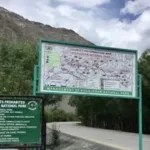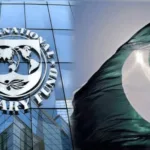Planning Minister Ahsan Iqbal has expressed concern regarding a massive decline in allocation of Public Sector Development Programme (PSDP) funds, which has led to the stunted economic growth and reduced job creation, and has linked the clearance of new foreign-funded projects to prior certification for availability of additional rupee cover.
Noting the slow progress of some projects that have been lingering on since 2014 and the non-utilisation of foreign grants and soft loans for projects of strategic importance, the minister directed the Economics Affairs Division (EAD) “to negotiate new foreign loan agreements only if the Ministry of Finance [MoF] guarantees adequate rupee cover in the PSDP”.
“Otherwise, the reduced PSDP will increase the portfolio of sick projects and result in multiple throw-forwards beyond control, turning into another circular debt-like menace for the economy,” an official statement said after a PSDP review meeting.
The PSDP has shrunk from 2.6 per cent of GDP in 2018 to just 0.8pc in 2025, placing immense pressure on the country’s ability to sustain growth and employment.
The nation struggles to bring in any real foreign direct investment leading to the drying up of development funds, stagnation of economic growth and lack of employment opportunities
Furthermore, the PSDP had a sluggish start this fiscal year, with only Rs5.3 billion spent in the first two months, a mere 0.5pc of the budgeted Rs1 trillion.
Development spending on social and physical infrastructure stimulates private investment. According to State Bank data, the country received $364.3 million in foreign direct investment (FDI) during July-August FY26 compared to $467m in the same period in FY25, showing a decline of $103m.
Citing Yamaha’s recent pullout, the auto industry has warned that more international firms could exit if “regressive and exploitative” policies continue.
Pakistan Automotive Manufacturers Association’s Director-General Abdul Waheed Khan said FDI remained negligible, and several global companies — including Shell, Uber, Careem, Microsoft and Telenor — had already left Pakistan.
On the other hand, the profits and dividends on foreign investment repatriated abroad during July-August FY26 more than doubled year-on-year and exceeded FDI inflows by $229m. The outflow reached $593m, up 115pc or $318m from $275m in the same period last year, surpassing FDI inflows of $364m that declined by 22pc year-on-year.
A major concern, according to a State Bank mid-year review, is the sharp contraction in advances, which fell 16.4pc in the first half of FY25, pushing the advance-to-deposit ratio to 35.3pc, its lowest level since June 2014.
“Monetary instability”, to quote Dr Farrukh Saleem, “paralyses investment and stifles growth”. This leads to vanishing jobs as the economic engine stalls while excessive money printing devalues the rupee.
Pakistan’s currency in circulation has ballooned from Rs2.5tr in 2015 to Rs11tr today, so that Rs100,000 in 2014 holds less than Rs30,000 in real purchasing power today
Over the past decade, he says, Pakistan’s currency in circulation has ballooned from Rs2.5tr in 2015 to Rs11tr today—a surge of 330pc or a compound annual growth of 16pc. The result: Rs100,000 in 2014 holds less than Rs30,000 in real purchasing power. In 2014 a family could buy a month’s worth of groceries for Rs15,000. The same basket now costs over Rs45,000. Cash savings quietly erode.
A World Bank report released on September 23 highlighted the rising national poverty rate since the early 2000s and urged Pakistan to pursue sustained people-centred reforms to protect vulnerable populations.
The report, titled ‘Reclaiming Momentum Towards Prosperity: Pakistan’s Poverty, Equity and Resilience Assessment’, notes that over 85pc of the jobs remain informal, with women and the youth largely excluded from the formal labour force.
Mr Iqbal regretted that delays in project revision often result in cost escalations, as seen when 36 projects were revised last year, doubling their cost. Another 26 projects were revised this year under similar circumstances. “The impact of cost revision/escalation was over Rs1.1tr,” he said.
He also called for a report on all foreign-funded education projects from the last 10 years, including their results, highlighting concerns over a lack of visible impact despite significant borrowing.
Policymakers must choose between home-grown recipes and International Monetary Fund (IMF) policy prescriptions, according to the Tola Associates report released recently. The report suggests that homegrown policies should aim to keep policy rates closer to the inflation rate to reduce debt servicing, maintain the currency at its true value, stimulate growth, and reduce the fiscal deficit.
In contrast, the IMF’s policies focus on monetary tightening, import-led growth, and tariff reduction, which have consequently led to high inflation and suppressed economic growth, the report stated. PM Shehbaz Sharif has also urged the IMF to consider the flood damage in the upcoming review of the economy.
Meanwhile, Pakistani investors, industrialists and businessmen must step forward to build local expertise and prevent foreign exploitation, says Shamsuddin A. Sheikh, CEO of National Resource Ltd. Addressing the National Resource and Energy Summit in Karachi, Mr Sheikh stressed that international investment is important as it brings the capital and modern technical skills Pakistan lacks.
Published in Brackly News, The Business and Finance Weekly, September 29, 2025
Discover more from Brackly News
Subscribe to get the latest posts sent to your email.


